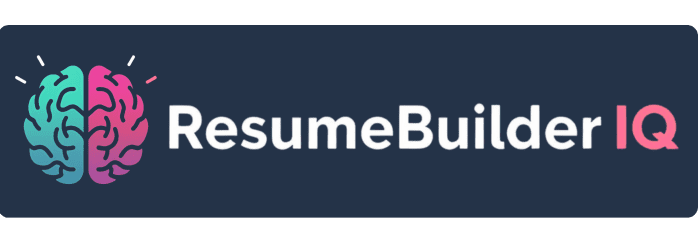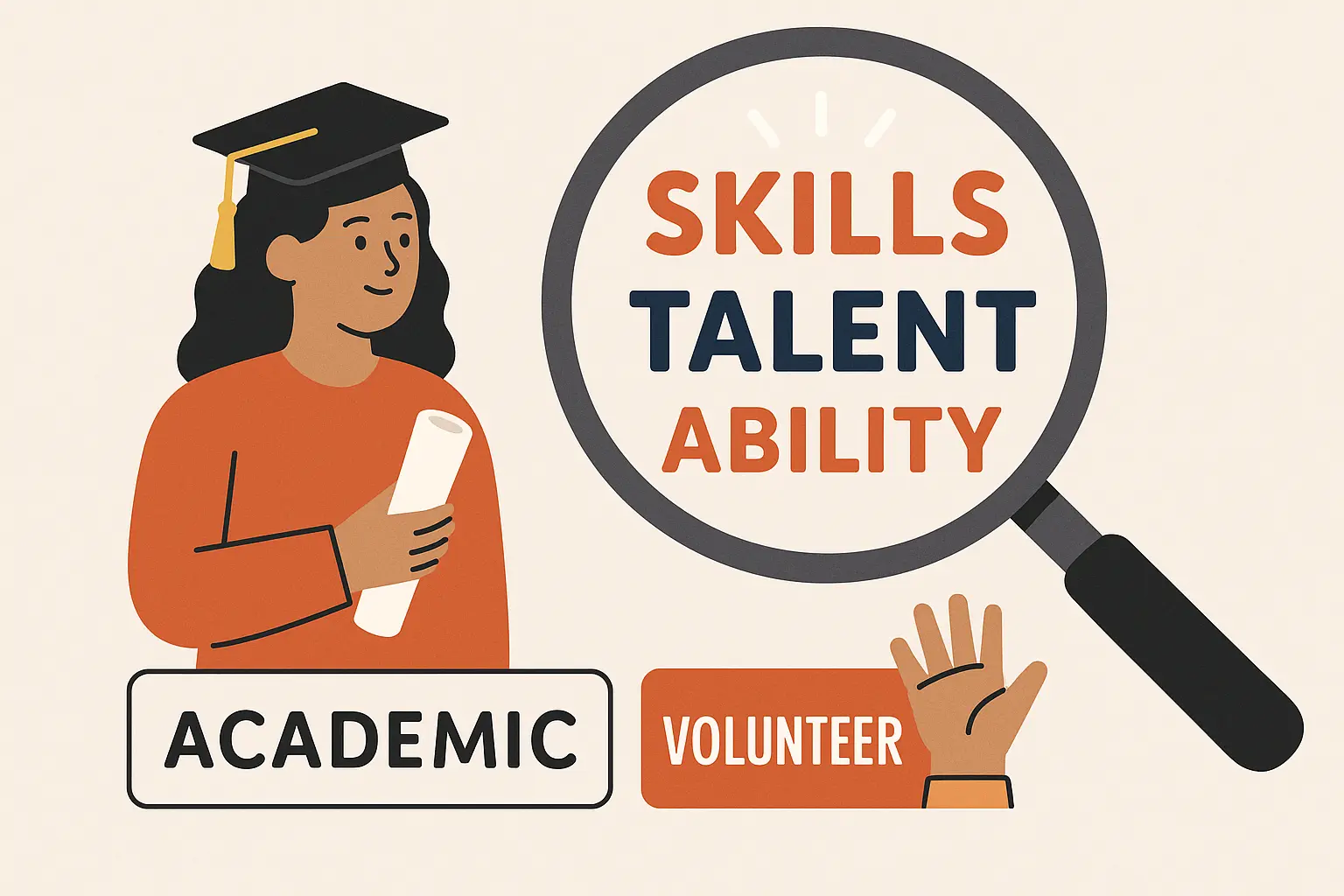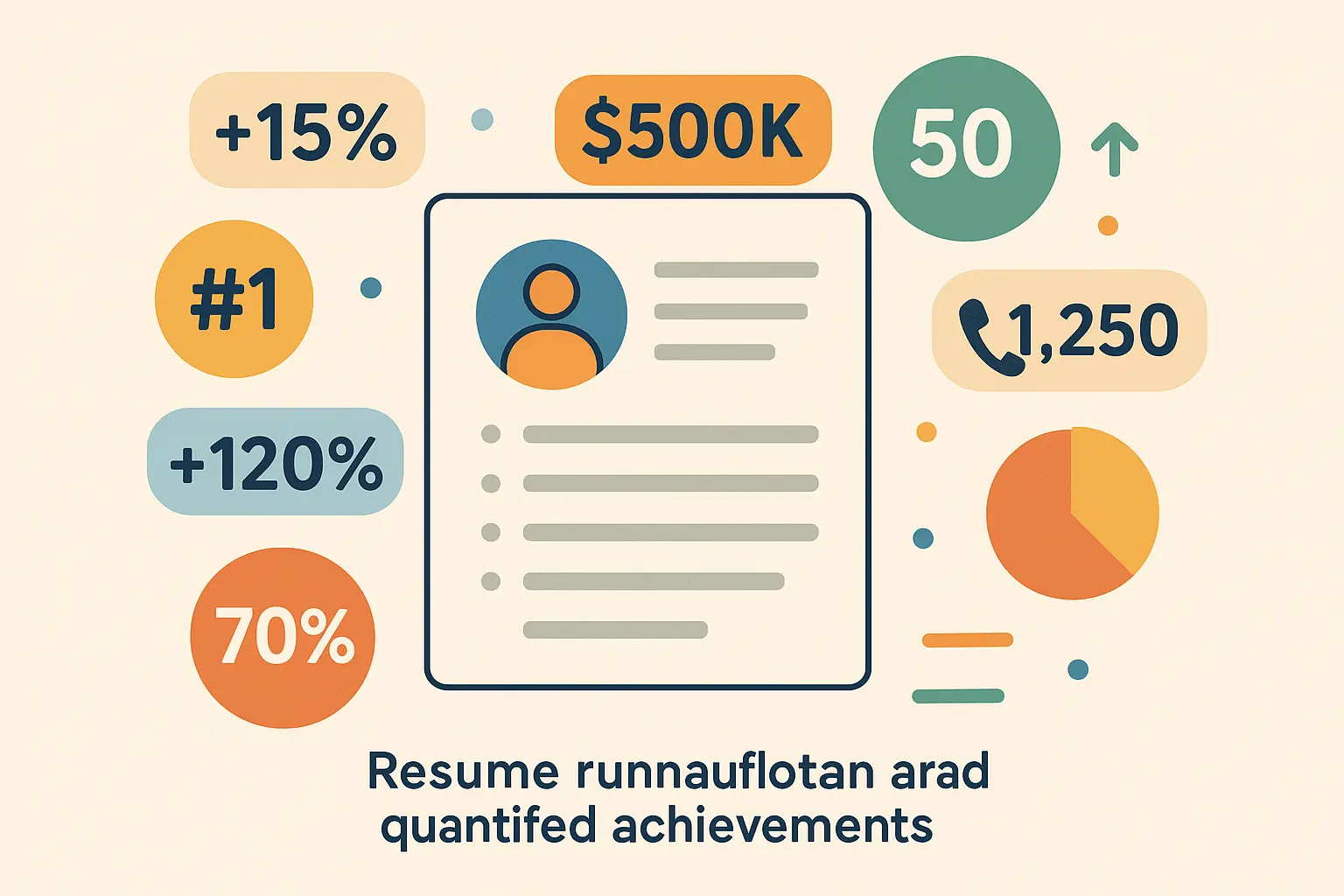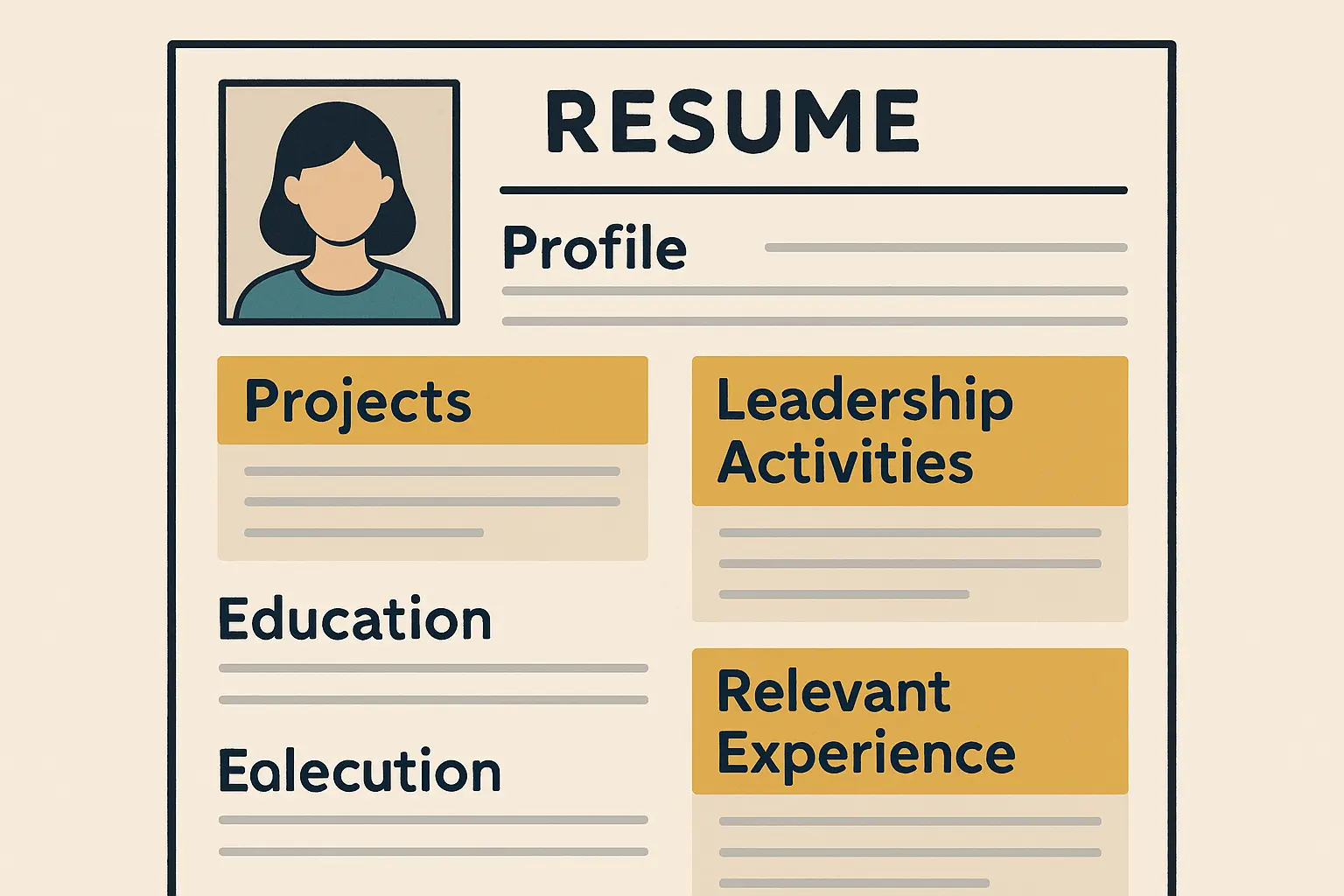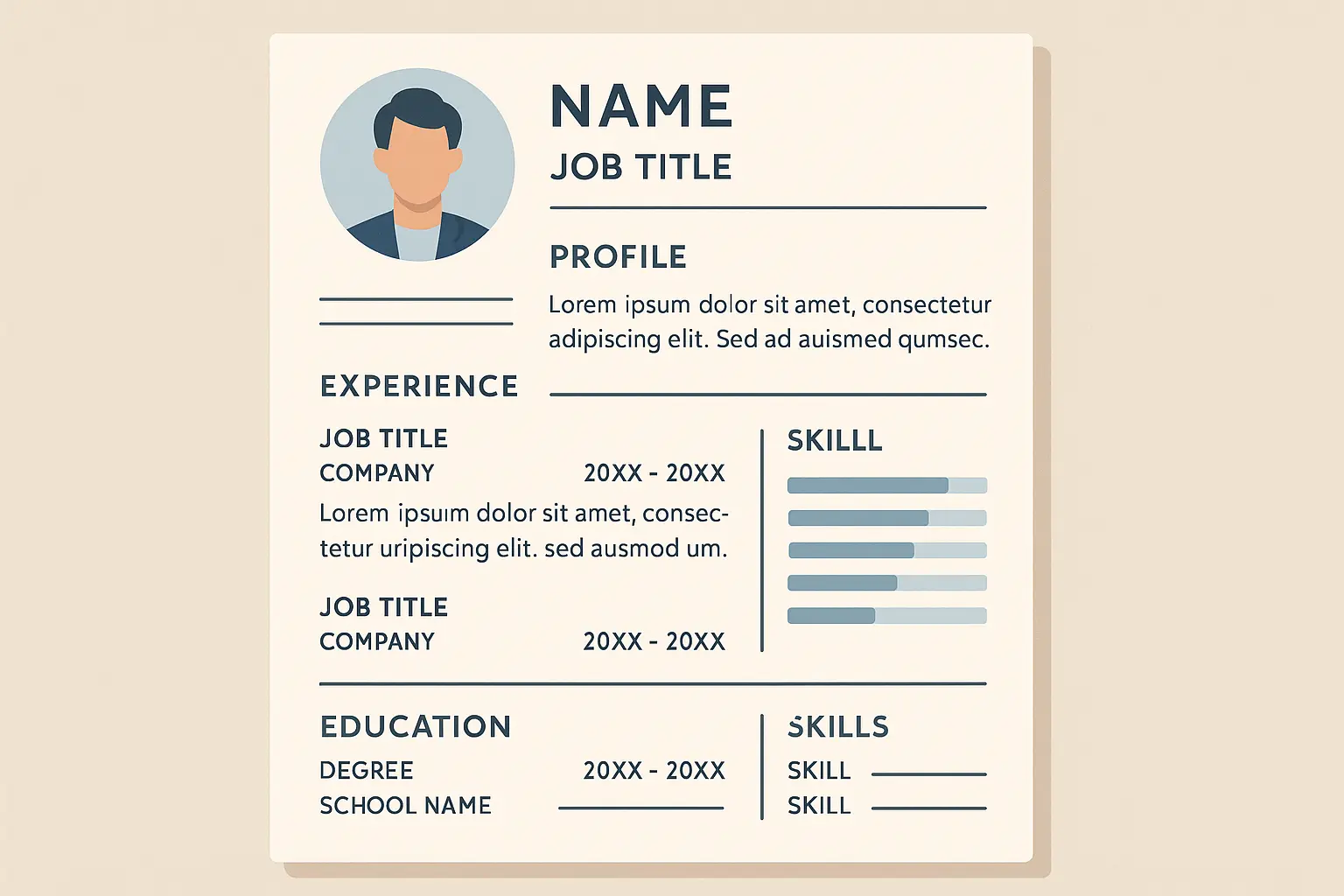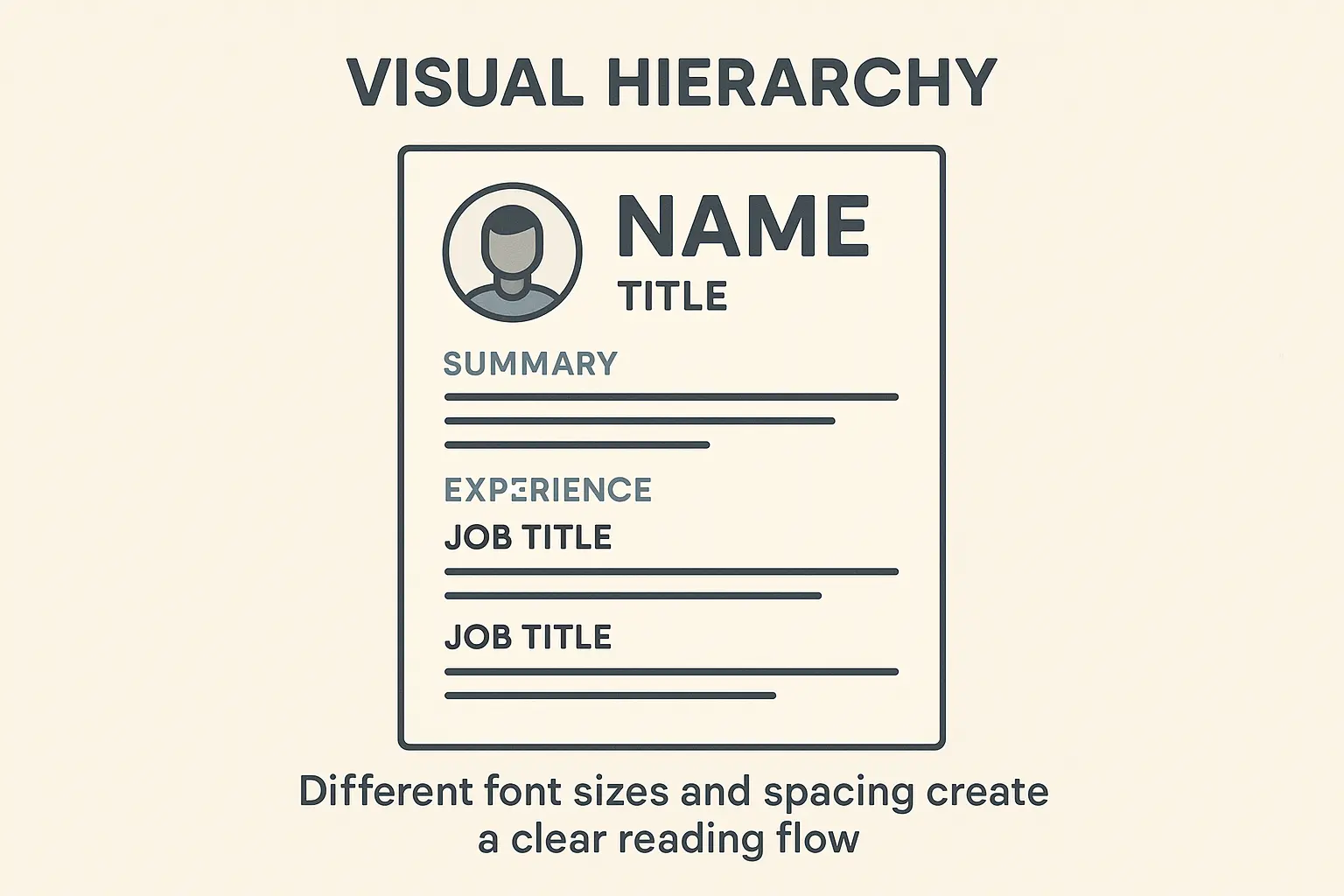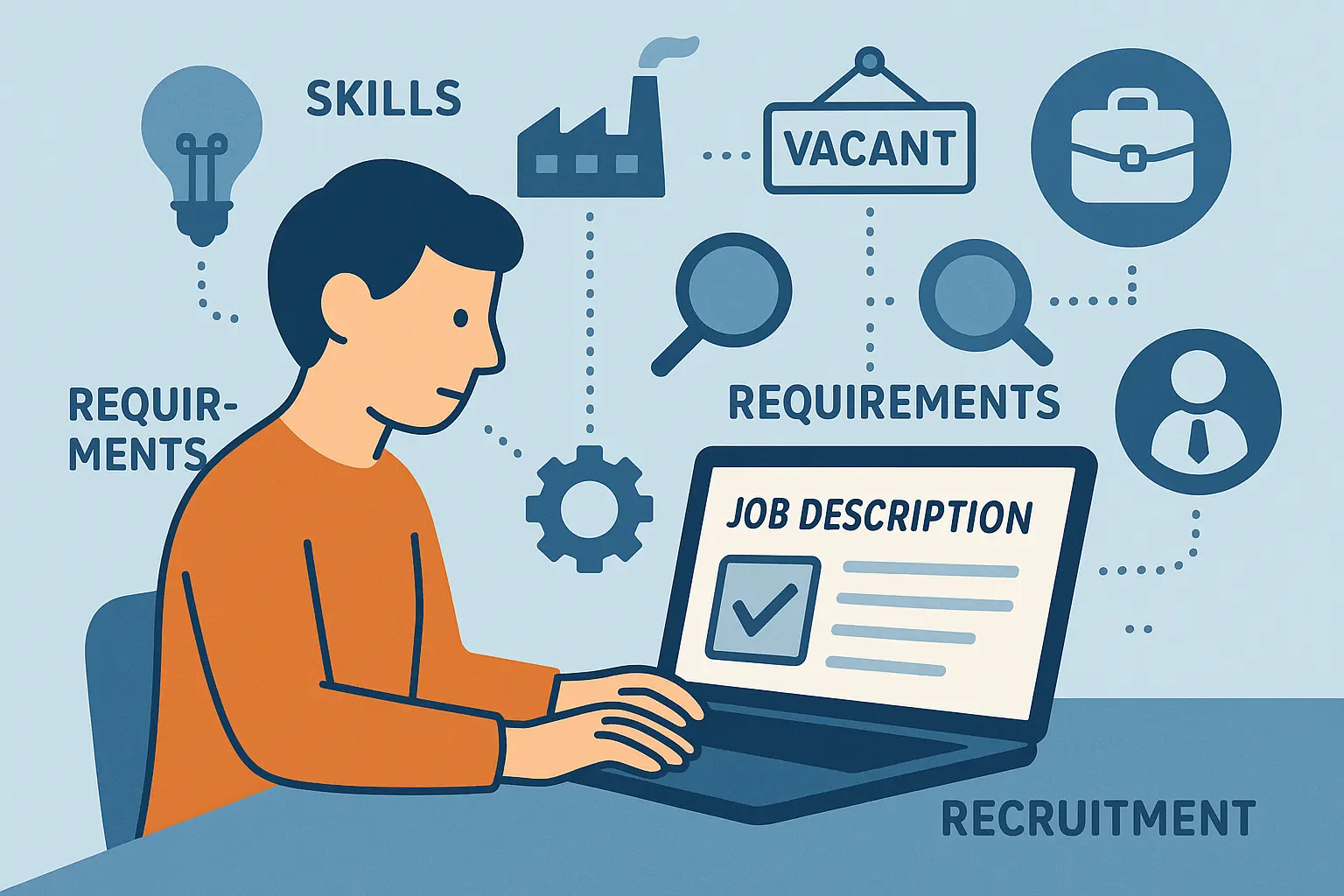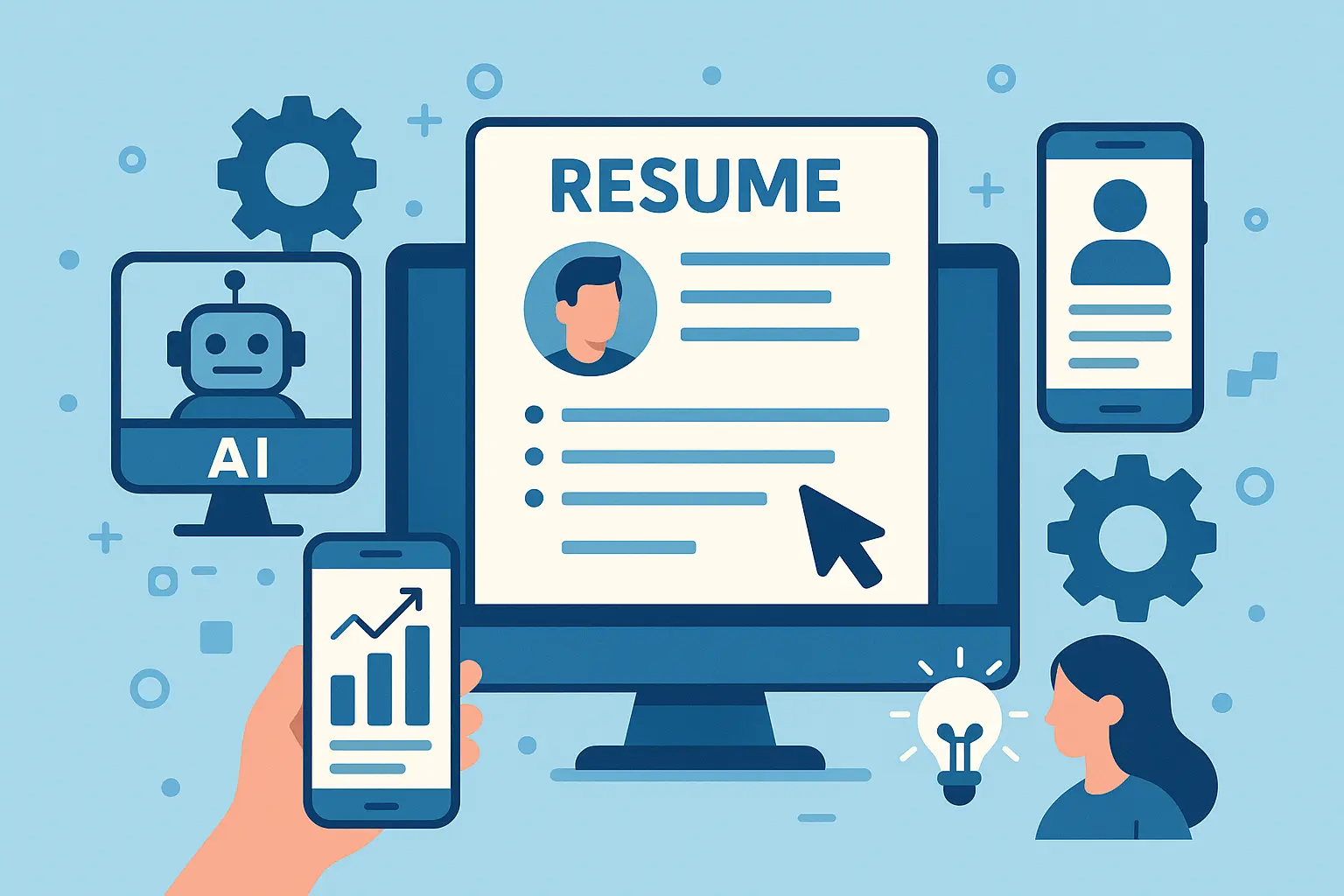How to Make a Resume with No Experience That Actually Gets You Hired
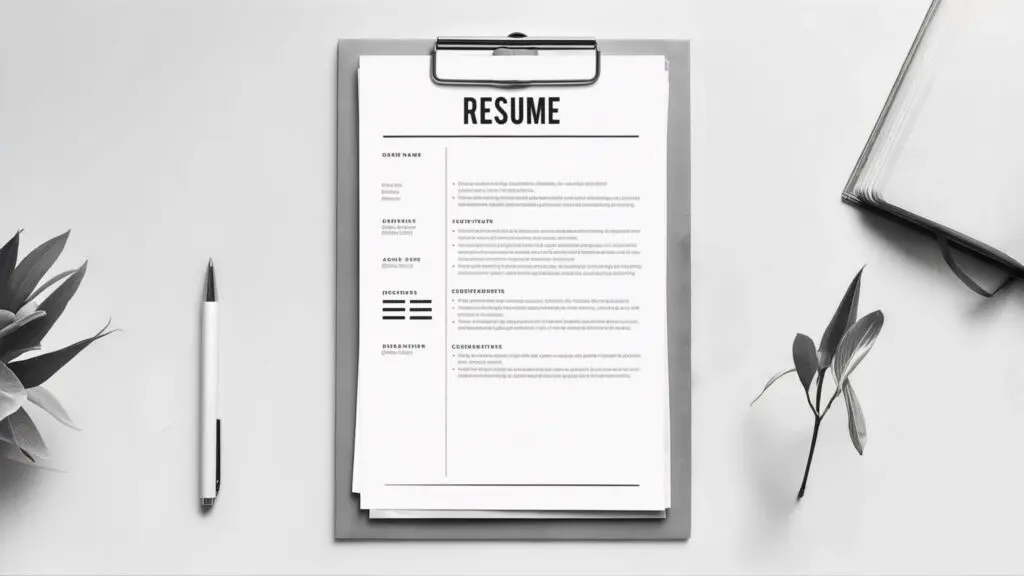
I get it—staring at a blank resume when you’ve never had a “real job” feels pretty terrifying. But here’s the thing: you’re not starting from zero. You just don’t know how to see what you already have.
Last month, I helped a college senior named Jake who was convinced he had nothing to put on his resume. Twenty minutes into our conversation, we’d identified leadership experience from his fraternity, project management skills from organizing his sister’s wedding, and customer service experience from dealing with difficult professors. His problem wasn’t lack of experience—it was lack of perspective.
According to Resume Builder research, “the Bureau of Labor Statistics forecasts entry-level jobs will increase by about 5% between 2021 and 2031,” so there are actually growing opportunities for new professionals like you.
I’ve helped hundreds of entry-level candidates transform their academic projects, volunteer work, and life experiences into resumes that actually get attention. The truth is, you already possess valuable skills—you just need to recognize them and present them right.
Let me walk you through exactly how to highlight your potential, make your resume work with those picky computer systems, and position yourself as the eager, capable candidate employers want to hire. We’ll cover everything from discovering what you’re already good at to using smart tools that can transform your basic experiences into stories that actually matter to employers.

Table of Contents
-
Find Your Hidden Skills
-
Write Like a Pro
-
Format That Works
-
Industry-Specific Tips
-
Tools That Help
-
Make It Yours
TL;DR
-
Your academic projects, volunteer work, and personal experiences contain valuable skills that employers actually want
-
How you format and describe things matters more than years of experience when you’re starting out
-
Skills-focused layouts often work better than chronological formats for new grads
-
Industry research and the right keywords can make you stand out even without traditional experience
-
Smart tools can help transform basic experiences into compelling stories, but your authentic voice matters most
Find Your Hidden Skills
You have more professional value than you think. Every experience you’ve had—from organizing study groups to managing personal projects—has taught you something that translates directly to the workplace.
I see students dismiss their accomplishments all the time because they weren’t “real jobs.” That’s a mistake. Your coursework, volunteer activities, and even personal challenges have developed real skills that employers actively seek in entry-level candidates.
The key is learning to recognize these experiences as legitimate professional development and presenting them with the same weight as traditional work history. When you create a resume with no experience, you’re actually showcasing a different type of experience—one that demonstrates your potential, adaptability, and fresh perspective.
Skills You Didn’t Know You Had
Every group project you’ve completed taught you collaboration and conflict resolution. Every presentation you’ve given developed your public speaking abilities. Managing deadlines while juggling multiple courses? That’s time management and prioritization in action.
These aren’t just school activities—they’re legitimate professional experiences that show your capabilities to potential employers. The challenge is recognizing their value and talking about them effectively.
Understanding the difference between hard and soft skills becomes crucial here. Employers hiring entry-level people know they’ll have to teach you their systems anyway. What they can’t teach? Whether you show up on time, work well with others, or figure things out when stuff goes wrong. That’s gold.
Mining Your Academic Experience
Your coursework has given you more professional experience than you think. Class presentations taught you public speaking under pressure. Group projects showed you how to collaborate with different personality types and work styles. Research papers developed your analytical thinking and attention to detail.
According to Coursera research, “Experts recommend listing your GPA on your resume if it’s above 3.5,” as this demonstrates both academic excellence and work ethic that employers value in entry-level candidates.
Consider Sarah, a marketing major who led a semester-long campaign analysis project. Instead of writing “completed group project,” she wrote: “Led 5-person team in comprehensive social media campaign analysis, presenting findings to 50+ peers and achieving 95% project grade—demonstrating leadership, analytical thinking, and presentation skills.”
This approach transforms ordinary academic work into impressive professional accomplishments. When you’re figuring out how to make a resume with no job experience, your academic achievements become your professional portfolio.
Volunteer Work as Professional Credentials
Volunteer work often provides more diverse experience than entry-level jobs. You’ve likely handled responsibilities, worked with teams, and solved problems in ways that directly apply to professional settings.
Recent career guidance from “Ohio University Career Services” emphasizes that “employers value soft skills, and a summer job is a great place to develop them. From communication, teamwork, problem-solving and time management, these transferable skills help demonstrate that you’re dependable, adaptable and ready to grow.”
The same principle applies to volunteer work—often with even greater responsibility and impact than typical summer jobs.
When showcasing volunteer experience, focus on highlighting soft skills on your resume that demonstrate your character and work ethic. Did you coordinate events? That’s project management. Did you train new volunteers? That’s leadership and mentoring. Did you handle donor communications? That’s customer service and relationship building.
Your Natural Strengths Matter
Your personality traits and natural abilities often set you apart from other candidates. Communication skills, problem-solving abilities, adaptability, and work ethic can’t be taught easily—and employers know this.
Think about the challenges you’ve overcome. Maybe you balanced coursework with caring for family members, demonstrating responsibility and time management. Perhaps you adapted quickly to remote learning during the pandemic, showing flexibility and self-motivation.
|
Soft Skill |
Academic Example |
Professional Application |
|---|---|---|
|
Leadership |
Led study group for difficult course |
Can coordinate team projects and initiatives |
|
Problem-solving |
Resolved scheduling conflicts for group work |
Can handle workplace challenges and find solutions |
|
Communication |
Presented research to class |
Can effectively share ideas with colleagues and clients |
|
Time management |
Balanced coursework with part-time work |
Can handle multiple priorities and meet deadlines |
|
Adaptability |
Adjusted to remote learning during pandemic |
Can thrive in changing work environments |
Write Like a Pro
Now that you know what skills you have, let’s talk about how to describe them. Strong content focuses on results and impact rather than just listing what you did. When you’re working with limited experience, this principle becomes even more important—you need every word to count.
I’ve seen too many entry-level resumes that read like job descriptions rather than achievement summaries. The difference is transformative. Instead of “responsible for organizing events,” write “coordinated 3 fundraising events that raised $5,000 for local charity, managing logistics for 200+ attendees.”
Writing Your Professional Story
Creating a compelling professional narrative requires shifting focus from what you haven’t done to what you can do. This involves writing a professional summary that emphasizes your potential, enthusiasm, and relevant skills while positioning yourself as someone ready to contribute value from day one.
When you’re learning how to write a resume with no experience, your story becomes about potential rather than past performance. Employers hiring entry-level candidates understand this—they’re looking for indicators of future success, not extensive track records.
Your professional summary needs to immediately communicate your value without relying on years of experience. Focus on your strongest skills, career goals, and what you bring to the table.
Instead of: “Recent graduate seeking entry-level position,” try: “Motivated computer science graduate with strong Python and Java skills, demonstrated through 3 successful app development projects. Eager to apply analytical thinking and collaborative problem-solving abilities to contribute to innovative software solutions.”
This approach makes employers excited about your potential rather than concerned about your lack of experience. Crafting compelling resume summary examples can help you articulate your value proposition effectively, even when starting your career without traditional work experience.
Action Words That Work
Strong action verbs immediately convey competence and results. Words like “coordinated,” “implemented,” “analyzed,” and “developed” sound more professional than “helped with” or “was responsible for.”
Start each bullet point with a strong action verb, vary your choices to avoid repetition, and choose verbs that match the job requirements. Avoid weak words like “helped,” “assisted,” or “was responsible for.” Use past tense for completed experiences, present tense for ongoing roles.
The right verbs make your experiences sound more substantial and your contributions more significant. They also help your resume perform better in applicant tracking systems that scan for specific keywords.
Career experts from “University of Cincinnati” recommend using “action-oriented language and measurable achievements” such as “Managed a team of four to complete a year-long research project on renewable energy, resulting in a published paper in Environmental Science Journal.”
This approach works for any experience level. The key is focusing on what you accomplished and the skills you demonstrated, rather than just what you did.
Numbers Make It Real
Numbers make your accomplishments concrete and memorable. Even without traditional work metrics, you can quantify academic projects (managed team of 5 students), volunteer work (organized event for 100+ attendees), or personal achievements (maintained 3.8 GPA while working part-time).
These specifics make your resume more credible and impactful. Recruiters remember concrete details much better than vague descriptions.
Alternative Experience Sections
Traditional “Work Experience” sections don’t work when you don’t have traditional work. Instead, create sections like “Relevant Experience,” “Projects,” or “Leadership Activities” that showcase your capabilities.
These alternative approaches allow you to highlight your most impressive accomplishments regardless of whether they were paid positions. A “Projects” section can include academic work, personal coding projects, or volunteer initiatives. A “Leadership Activities” section can cover everything from student government to organizing community events.
The goal is presenting your experiences in a way that emphasizes their professional relevance and the skills they developed.
Format That Works
Once your content is solid, formatting becomes your secret weapon. Professional presentation matters enormously when you’re competing against more experienced candidates. Proper formatting can actually compensate for limited experience by demonstrating attention to detail and professionalism.
I’ve seen great candidates get overlooked because their resumes looked unprofessional or were difficult to read. Conversely, I’ve seen entry-level candidates with limited experience get interviews because their resumes were exceptionally well-formatted and easy to scan.
Templates That Actually Work
The right template enhances your content while ensuring compatibility with applicant tracking systems. You need designs that look professional without being overly flashy, provide good use of white space, and organize information clearly.
Template choice can significantly impact how employers perceive your professionalism and attention to detail. A clean, well-organized template suggests you’ll bring the same level of care to your work.
Making Friends with ATS Systems
Applicant tracking systems scan resumes before human eyes see them, and they can be surprisingly picky about formatting. Complex designs, unusual fonts, and creative layouts often cause problems.
Use standard fonts like Arial, Calibri, or Times New Roman. Avoid graphics, images, or complex designs. Use standard section headings and save in both PDF and Word formats. Test readability by copying and pasting into plain text, and keep formatting simple and consistent.
Understanding ATS-friendly resume formatting is essential for entry-level candidates who need every advantage to get past automated screening systems.
Skills-Based vs. Chronological Formats
Skills-based (functional) resumes emphasize what you can do rather than when you did it. This format works particularly well for career changers and new graduates because it highlights capabilities over timeline.
However, you need to implement this approach carefully to avoid looking like you’re hiding something. The best approach for most entry-level candidates is a hybrid format that combines skills emphasis with some chronological structure.
|
Resume Format |
Best For |
Advantages |
Potential Drawbacks |
|---|---|---|---|
|
Chronological |
Traditional career progression |
Shows clear work history |
Highlights employment gaps |
|
Skills-based (Functional) |
Career changers, new graduates |
Emphasizes abilities over timeline |
May seem like hiding something |
|
Combination/Hybrid |
Most entry-level candidates |
Balances skills with experience |
Requires careful organization |
For entry-level candidates, understanding functional resume templates can be particularly valuable when you need to emphasize skills over chronological work history.
Visual Hierarchy and White Space
Visual hierarchy uses font sizes, spacing, and formatting to guide readers through your resume in the order you want. Your name should be most prominent, followed by section headings, then individual entries.
This systematic approach ensures employers see your most important information first, even during quick scans. Put your best stuff first—it works.
White space isn’t wasted space—it’s a design tool that makes your resume easier to read and more professional-looking. Proper spacing between sections, adequate margins, and breathing room around text prevent your resume from looking cluttered or overwhelming.
Industry-Specific Tips
Different industries have varying expectations for entry-level candidates. Tech companies might value personal projects and coding bootcamps, while healthcare organizations prioritize relevant coursework and volunteer experience. Understanding these nuances helps you position yourself more effectively for your target roles and industries.
Research Your Target Market
Effective job searching requires understanding what employers in your field actually want from entry-level candidates. This means analyzing job descriptions, researching company cultures, and identifying the skills and qualities that matter most in your target industry.
This research directly informs how you present yourself. A marketing position might emphasize creativity and communication skills, while an accounting role focuses on attention to detail and analytical abilities.
Decode Job Descriptions
Job descriptions contain valuable clues about what employers really want. Beyond the obvious requirements, look for repeated phrases, preferred qualifications, and company values mentioned in postings.
These insights help you tailor your language and emphasize experiences that align with employer priorities. If multiple job postings mention “collaborative team environment,” make sure your resume highlights your teamwork experiences.
Company Culture Matters
Modern employers care about cultural fit almost as much as technical qualifications. Research company websites, social media, and employee reviews to understand their values and work environment.
Then highlight experiences and qualities that demonstrate you’d thrive in their specific culture. A startup might value adaptability and initiative, while an established corporation might prioritize process-following and attention to detail.
Use Their Language
Every industry has its own terminology. Using relevant keywords shows you understand the field and helps your resume perform better in applicant tracking systems.
However, keyword stuffing looks obvious and unprofessional—the key is natural integration of industry terms throughout your content. Research common phrases and concepts in your target field, then weave them naturally into your experience descriptions.
Different Role Types, Different Approaches
Entry-level positions vary significantly in their expectations and requirements. Some roles prioritize potential and trainability, while others need specific skills or knowledge.
Understanding these differences helps you adjust your presentation to match what each type of position values most. A customer service role emphasizes interpersonal skills, while a data analyst position focuses on technical abilities and problem-solving.
True entry-level positions are designed for candidates without extensive experience. These roles typically emphasize potential, enthusiasm, and basic qualifications over specific achievements. Your resume should highlight your eagerness to learn, relevant coursework, and any experiences that demonstrate reliability and work ethic.
Tools That Help
Before you hit send, let’s make sure your resume works everywhere it needs to. Today’s job search involves more technology than ever before. Smart tools can help transform your basic experiences into compelling stories, keyword optimization tools can improve your visibility, and proper formatting ensures your resume displays correctly across different platforms.
AI Writing Assistance
Artificial intelligence tools can help transform your basic experiences into compelling professional descriptions. These platforms analyze your input and suggest improvements, help identify transferable skills you might have missed, and ensure your language sounds professional and impactful.
Research from Coursera shows that “functional resumes promote your skills rather than list your experience,” making them particularly effective when combined with AI tools that can help identify and articulate transferable skills from non-traditional experiences.
The key is using AI as a starting point, not a replacement for your own voice and experiences. These tools work best when you provide authentic information that they can help you present more effectively.
AI writing tools excel at taking simple descriptions and making them sound more professional and impactful. Instead of struggling to describe your part-time job or volunteer work, these tools can suggest stronger language, better structure, and more compelling ways to present your experiences.
For example, “helped customers at retail store” becomes “provided personalized customer service to 50+ daily customers, resolving inquiries and contributing to positive shopping experiences that supported store sales goals.”
AI-powered keyword tools analyze job descriptions and suggest terms to include in your resume. These tools help ensure you’re using language that both applicant tracking systems and human recruiters expect to see. The result is better visibility in automated screening processes and stronger alignment with employer expectations. However, remember that keywords should enhance your authentic experiences, not replace genuine qualifications.
Multiple Formats and Platforms
Your resume needs to work across different platforms, devices, and submission methods. This means creating versions in multiple file formats, ensuring mobile compatibility, and maintaining formatting integrity across various systems.
According to Resume Builder research, “the recommended length for an entry-level resume is one page, especially for professionals with under 10 years of experience,” emphasizing the importance of concise, well-formatted content across all platforms.
Different employers and application systems prefer different file formats. You’ll need PDF versions for email submissions, Word documents for some online applications, and plain text versions for systems that strip formatting. Each format requires slight adjustments to maintain professional appearance and readability. Test your resume in each format to ensure it displays correctly and maintains its visual appeal.
Many recruiters and hiring managers review resumes on mobile devices, especially during initial screening. Your resume needs to display properly on smaller screens while maintaining readability and professional appearance. This consideration affects font choices, layout decisions, and overall design approach. What looks perfect on a desktop computer might be difficult to read on a smartphone screen.
Make It Yours
Creating a resume without traditional work experience isn’t about pretending you have more experience than you do—it’s about recognizing and presenting the value you already possess. Your academic achievements, volunteer work, personal projects, and natural abilities represent real qualifications that employers actively seek in entry-level candidates.
The key lies in shifting your perspective from what you lack to what you offer. Every group project taught you collaboration, every presentation developed your communication skills, and every challenge you’ve overcome demonstrated your problem-solving abilities. These experiences matter, and presenting them professionally makes all the difference.
You’re not starting from zero—you’re starting with a different kind of experience that shows your potential, fresh perspective, and eagerness to contribute. Employers hiring entry-level candidates understand this. They’re not expecting you to have managed teams or closed million-dollar deals. They want to see that you can learn, adapt, and bring energy to their organization.
The most important thing? Be authentic. Don’t try to inflate experiences or claim skills you don’t have. Instead, be honest about what you’ve done and confident about what you can do. That combination of humility and enthusiasm is exactly what employers want to see in entry-level candidates.
Resume Builder IQ’s AI-powered platform specifically addresses the challenges you face as an entry-level candidate. Our intelligent system helps transform your experiences into compelling professional narratives while ensuring ATS compatibility and industry-appropriate formatting. With over 25 professional templates and step-by-step guidance, you can create a resume that showcases your potential and gets you noticed by employers.
Ready to turn your experiences into a resume that opens doors? Try Resume Builder IQ today and discover how our AI-powered tools can help you create a professional resume that highlights your unique value proposition, even without traditional work experience.
